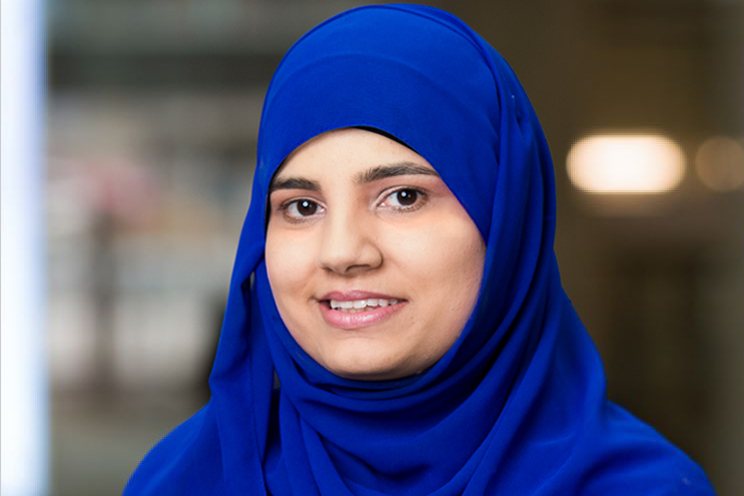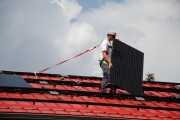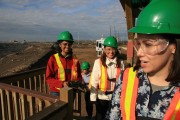Over the last two years, Pembina has examined the barriers to gender equity in the energy sector and has proposed solutions to be adopted by the province, federal government and leaders. This forthcoming series of interviews celebrate women advancing Canada’s transition to a clean economy and offers their insights into the opportunities to make the net-zero future one where all Canadians can participate and lead.
Aisha wants ambitious targets for reducing greenhouse gas emissions and she wants the world to adopt a more inclusive approach as it tackles the massive problems of climate change.
She has undergraduate and master’s degrees in engineering and an MBA. She worked for over six years at Toronto Hydro where she led the development of smart grid systems and supported the business development portfolio. She then co-founded an edtech startup called Attollo Social Enterprise which provides affordable early childhood education solutions for children and parents in underserved communities.
She then spent five years at MaRS Discovery District where she was a cleantech sector lead, enabling partners – corporations, governments, and non-profits - to adopt carbon-reducing solutions. Aisha is also on the board of the Pembina Institute.
She is currently the Vice President of Women in Renewable Energy (WiRE), where she is focused on international growth and fundraising.
Why is the energy transition important to you?
As we all know, and as we read in the latest report of the Intergovernmental Panel on Climate Change, this is essentially our last kick at the can. This is our last chance to save the planet. It goes to the core that you want to leave the world a better place than you found it.
Having worked with children through Attollo, and now that I also have a nephew and niece, it makes it more personal. But, more than that, there are a number of groups that have been traditionally left behind, not only in the energy sector, but across sectors. And, as we are transitioning to net-zero, I think this is not only one of the biggest opportunities for economic prosperity, but also a great opportunity for us to have an inclusive transition.
What are the key challenges you’ve faced in your career, and what are your thoughts on their solutions?
For career advancement and progress, you need networks and connections, colleagues that you can rely upon and pick up the phone and talk to. That has always been a bit challenging. I think part of it is the culture in the energy sector. I’m a woman. I wear a headscarf. I think the intersectionality of all of these things has contributed to some of these challenges. That is one of my key drivers for co-leading the work with Women in Renewable Energy (WiRE). We are providing opportunities for women, at all stages of their careers, to connect with their peers in the sector and form those deep connections that are so critical for success.
What does a successful energy transition look like to you?
First, we need ambitious targets that are required to stay below that 1.5 degrees C from pre-industrial times. The goals that we have set globally, but also from a Canadian perspective, are not even going to keep us at 2 degrees C.
We need to set and deliver on aggressive targets. And within those targets, the most critical is our target for reducing emissions from methane gas by 2030. When we look at the profile of the different greenhouse gas emissions over a 20-year period, the emissions from methane are 80 times more potent than carbon dioxide.
The second critical piece is inclusivity. As we are investing in the different pathways that will get us to net-zero, we must keep our Indigenous people, and all the other underrepresented communities, front and center. Climate change is the biggest challenge for our generation, and we need all of us - people of all genders, races, sexual identities, religions, socio-economic backgrounds and abilities - to come together to solve it.
Lightning Round
What book is on your nightstand?
The Selfish Gene by Richard Dawkins.
What is the proudest accomplishment of your life?
Attollo, because of the impact it has had and continues to have on children.
If you were granted one wish to make the world a better place, what would it be?
Stop all the wars, end conflict. If we are able to put aside our differences and collaborate, we can accomplish so much.
Describe the future of energy in one word.
Promising.
This profile also appeared as part of the Women in Energy Transformation Series, a series of four national dialogues co-hosted by the Pembina Institute and GLOBE Series. You can view the rest of the profiles here.
The Pembina Institute also wishes to to thank the McConnell Foundation and Women and Gender Equality for their generous support of Pembina’s ongoing work on advancing gender equity in energy.






